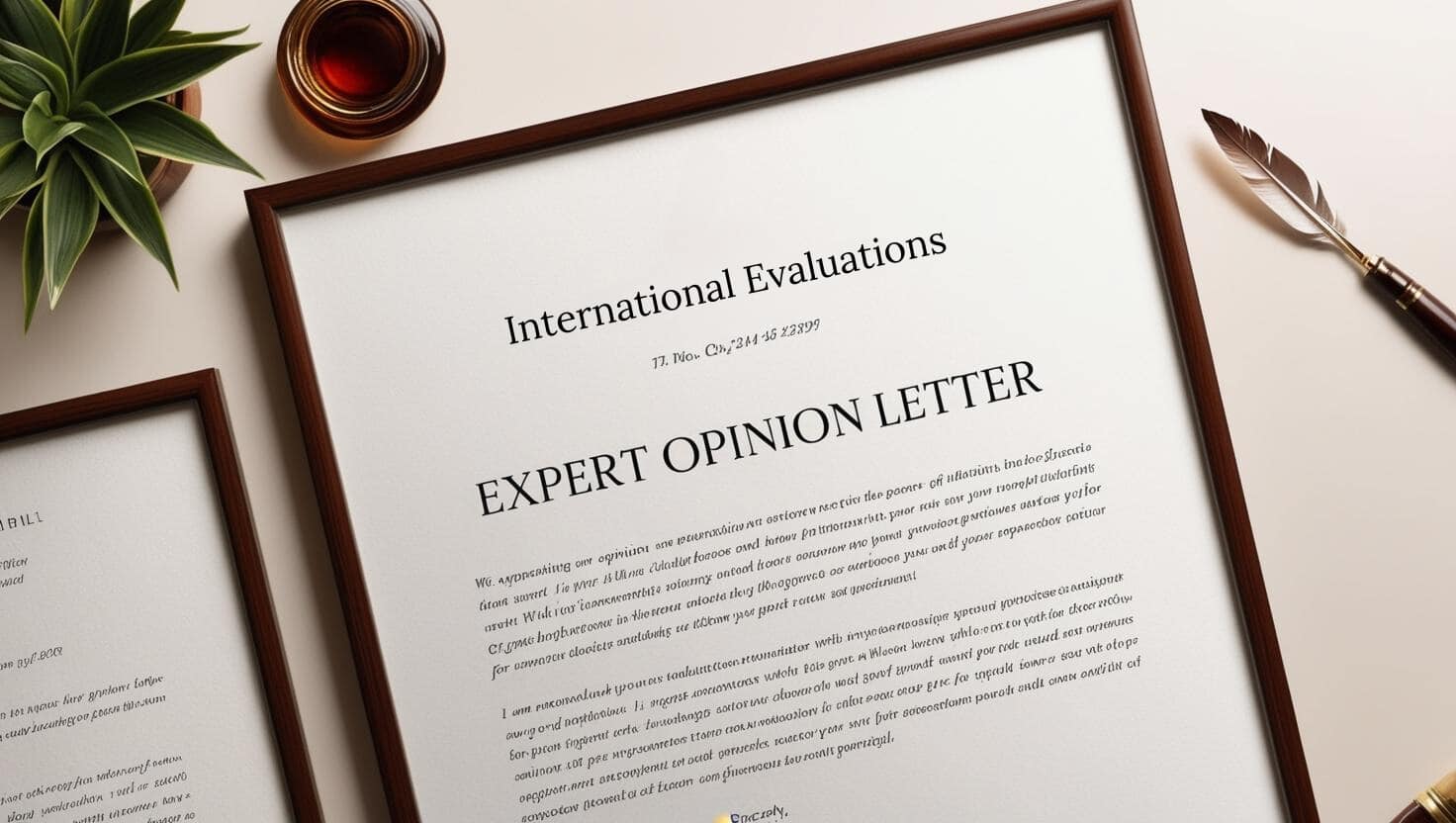Introduction
In our increasingly globalized world, the significance of understanding foreign education systems has never been more essential. Whether you're an international trainee seeking admission to a university abroad, an employer aiming to hire talent from varied backgrounds, or an educational institution examining applicants' certifications, familiarity with how different education systems run can significantly affect your choices. This short article delves deep into "The Course-by-Course Approach to Comprehending Foreign Education Systems," offering insights and assistance on navigating this complex terrain.
The Course-by-Course Technique to Understanding Foreign Education Systems
Understanding foreign education systems needs a nuanced approach. Conventional techniques frequently fail, as they might not account for the differences in curriculum, grading systems, and scholastic qualifications throughout nations. The course-by-course credential assessment approach addresses these disparities by analyzing private courses taken by trainees, instead of simply taking a look at overall degrees or diplomas.
What is Course-by-Course Credential Evaluation?
Course-by-course credential examination is a particular type of scholastic credential evaluation that breaks down a student's scholastic history into individual courses. This method provides detailed insights into:

- Course content: What topics were studied? Credit hours: The number of credits were granted for each course? Grades got: What was the performance level in each subject?
This level of information helps institutions assess the equivalency of foreign education compared to local standards effectively.
Why is it Important?
Understanding the specifics of a trainee's scholastic background permits institutions and employers to make educated choices. For example, if a student finished from a foreign university with an expertise in engineering however did not take specific core courses acknowledged in another nation, this might impact their eligibility for specific programs or job roles.
How Does Academic Credential Evaluation Work?
1. The Process Explained
Academic credential assessment usually involves a number of steps:
- Document Submission: Trainees submit their records and other pertinent documents. Verification: The evaluating company validates the credibility of these files with issuing institutions. Evaluation Report Development: Detailed reports are produced outlining course equivalencies and grades.
2. Types of Assessments Available
There are different kinds of evaluations available depending upon what you require:
- General assessment: Supplies an introduction of degree equivalency. Course-by-course assessment: Deals detailed information about specific courses. Work experience evaluation: Analyzes expert experience related to scholastic qualifications.
Each type serves various purposes and is important depending on your situation.

International Credential Evaluation Services: A Comprehensive Guide
When considering studying or working abroad, understanding which worldwide credential examination services to utilize is essential. Here's a breakdown:
1. Acknowledged Agencies for Examination Services
Several accredited firms concentrate on worldwide credential evaluations:
|Firm Call|Country|Expertise|| ----------------------------|-----------------------|------------------------------|| World Education Provider (WES)|USA|Academic qualifications|| Educational Credential Evaluators (ECE)|U.S.A.|Course examinations|| International Education Evaluators (IEE)|USA|Comprehensive assessments|
These firms have developed trustworthiness and are acknowledged by universities and employers alike.
2. Aspects Influencing Option of Agency
When choosing an agency for worldwide credential examination services, think about factors such as:
- Reputation and recognition Turnaround time for evaluations Cost of service Type of reports provided
The Role of Course-by-Course Credential Assessment in Admission Processes
1. Universities' Perspective on Evaluations
Universities frequently count on course-by-course evaluations during admissions due to the fact that they offer clearness concerning the applicant's preparedness for their programs.
Why Is This Crucial?
Different nations have differing teaching methodologies and course structures; hence:
- It makes sure that applicants satisfy prerequisites. It helps keep academic requirements within programs.
2. Companies' Perspective on Evaluations
For employers, understanding a candidate's instructional background through detailed evaluations can be essential in recruitment processes.
Key Points for Employers
Employers can figure out if candidates have necessary abilities through examinations such as:
- Identifying core proficiencies developed throughout coursework. Validating claims made by prospects concerning their academic achievements.
Work Experience Assessment: Bridging Gaps in Academic Credentials
In addition to official education, work experience plays a significant function in examining someone's qualifications-- specifically when people have non-traditional academic backgrounds or when they've acquired proficiency through practical ways instead of formal schooling.
1. What Constitutes Work Experience Evaluation?
Work experience examinations include examining expert experiences against academic standards. Aspects assessed include:
- Job titles held Responsibilities undertaken Skills acquired
2. Value in Various Sectors
Various sectors value work experience in a different way; for example:
- In technical fields like IT or engineering, appropriate work experience might surpass formal qualifications. In academic community or specialized professions like medication, official qualifications may hold more weight than work history alone.
Expert Viewpoint Letters: Enhancing Your Credential Assessment Process
A professional viewpoint letter functions as an additional tool that supports traditional credential assessments by providing context about unique academic experiences or curricula that might not fit neatly into standard frameworks.
1. Purpose of Professional Viewpoint Letters
These letters use insights from specialists who comprehend both the foreign education system and regional requirements better than automated evaluation processes can convey.
Benefits Include:
- Verification of unusual qualifications Clarification on curriculum specifics Support in making a case for admission or hiring
2. How to Obtain a Professional Opinion Letter?
To obtain an expert opinion letter:
Identify professionals familiar with both instructional systems. Request comprehensive evaluations based on individual academic records. Ensure these opinions are documented officially for submission with applications.Business Plan Examinations: Understanding Entrepreneurial Qualifications Throughout Borders
In today's competitive landscape, companies often look for skill from diverse backgrounds who have distinct entrepreneurial skills formed by diverse educational experiences around the globe.
1. What is Company Plan Evaluation?
A business strategy examination examines the viability and possible success of proposed service ideas while thinking about fundamental understanding gained from official education and useful experiences abroad.
Components Include:
- Market research analysis Financial projections Marketing strategies
2. Value in Global Markets
Business plan examinations matter because financiers frequently https://rylanpajc595.yousher.com/specialist-letters-described-how-they-impact-international-credential-examination desire assurance that business owners comprehend regional markets effectively while also having the ability to leverage their global education effectively.
Conclusion
Navigating foreign education systems can seem intimidating in the beginning look; nevertheless, employing methods such as course-by-course credential examination provides clearness and precision that benefits both students and institutions alike. By integrating numerous tools like work experience evaluations and skilled viewpoint letters into this process, stakeholders can guarantee they make well-informed choices concerning admissions or employing practices based upon comprehensive evaluations rather than surface-level details alone.
In summary, "The Course-by-Course Technique to Understanding Foreign Education Systems" not only improves openness however likewise fosters inclusivity in academic community and work sectors worldwide-- making it possible for varied skills to contribute meaningfully across borders without being hindered by misconceptions surrounding their qualifications.
Frequently Asked Concerns (Frequently asked questions)
Q1: What is course-by-course credential evaluation? A: It's a technique that assesses private courses taken by trainees instead of just overall degrees to supply in-depth insights into their scholastic history.
Q2: Why should I get my qualifications evaluated? A: Credential evaluations assist universities assess your qualifications accurately while allowing employers to verify your skills against industry standards.
Q3: Which firms use international credential assessment services? A: Agencies like World Education Solutions (WES) and Educational Credential Evaluators (ECE) are widely acknowledged alternatives among others focusing on global qualifications.
Q4: Can work experience be evaluated alongside my academic credentials? A: Definitely! Work experience evaluations examine professional experiences relevant to your field along with official academic achievements enhancing your overall profile significantly.
Q5: How do skilled viewpoint letters contribute to my application? A: They provide customized context from well-informed experts confirming unique elements about your credentials which might not be recorded through standard evaluations alone.
Q6: Is service plan assessment important for business owners with foreign degrees? A: Yes! It verifies entrepreneurial ideas against established organization concepts making sure detailed analyses that draw in financial investments while showcasing innovative thinking influenced by varied instructional backgrounds.
This article aims not only at demystifying complicated processes involved but likewise highlights vital resources needed along this journey towards understanding foreign education systems effectively!